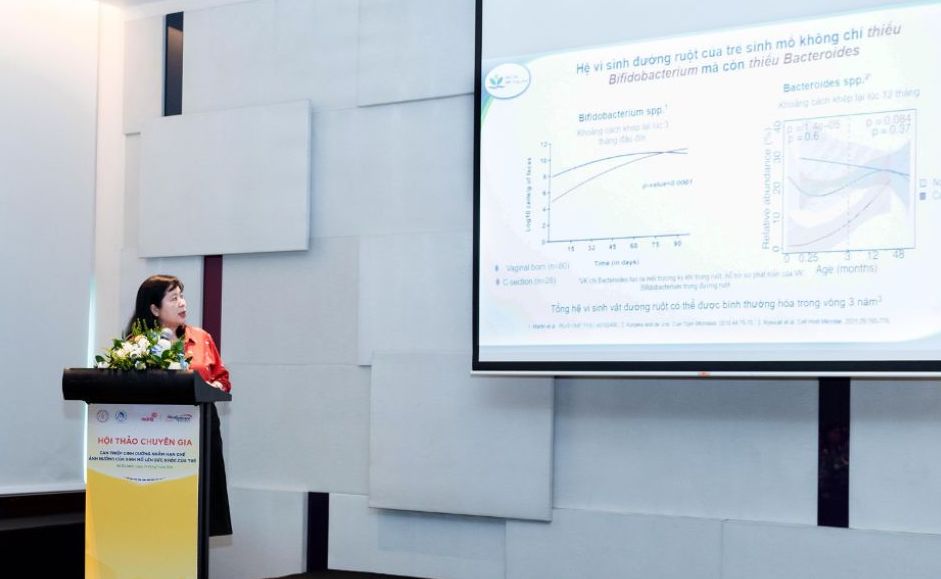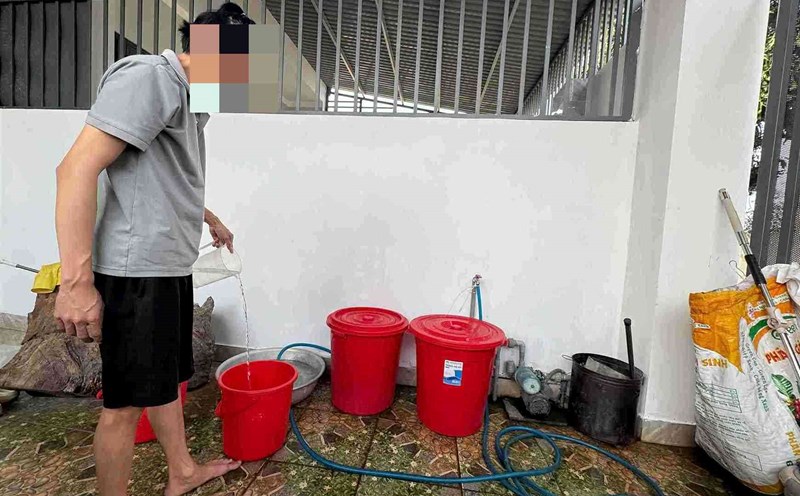The Vietnam Pediatric Association and the Vietnam Obstetrics and Gynecology Association collaborated with Mead Johnson Nutrition Vietnam to organize an expert workshop on the topic "Nutritional intervention to limit the impact of cesarean section on children's health" in Ho Chi Minh City.

The conference reached a consensus between the Vietnam Pediatric Association and the Vietnam Obstetrics and Gynecology Association on a nutritional intervention strategy to limit the impact of cesarean section on children's health, supporting children's immunity and brain development.
Supplementing essential nutrients such as MFGM, DHA, 2'-FL, PGX/GOS, Lactoferrin can reduce the impact of cesarean section on intestinal microflora, support improving the immune system and long-term brain development, especially in the early stages of life.
Impact of cesarean section on immune health and brain development in young children
According to Dr. Nguyen Ba My Nhi - Director of the Obstetrics and Gynecology Center (Tam Anh General Hospital), the intestinal microflora is formed immediately after birth and plays many important roles in health, especially for newborns. In particular, children born by cesarean section are often susceptible to bacterial imbalance, causing many harmful effects on the child's health.
In the short term, babies born by caesarean section have higher rates of infection, especially respiratory infections, and hospitalization in early life than babies born vaginally. Babies born by caesarean section have a higher risk of allergies.
In the long term, incomplete maturation of the intestinal microflora can disrupt the gut-brain, lung, and skin axis. Therefore, cesarean section increases the risk of metabolic diseases.
In addition, cesarean section also affects the child's brain development by slowing down the myelination process, reducing the integrity of white matter microstructure, and reducing neural conduction in early childhood, thereby changing the child's cognition and behavior.

Associate Professor, Dr. Nguyen Anh Tuan - Head of General Internal Medicine 2 (Children's Hospital, Ho Chi Minh City), Deputy Head of Pediatrics Department (University of Medicine and Pharmacy, Ho Chi Minh City) - said: "Children born by cesarean section are first exposed to microorganisms from the hospital environment and medical staff, so they receive harmful bacteria. This leads to intestinal dysbiosis, which causes many consequences, both short-term and long-term. However, appropriate intervention will help minimize this difference."
Early nutritional strategies support immune system and brain development in cesarean-born babies
Breast milk is the optimal source of nutrition, shaping and developing the intestinal microflora thanks to important nutrients and bioactive substances.
Therefore, according to Dr. Luu Thi My Thuc - Head of the Department of Clinical Nutrition (National Children's Hospital), nutritional interventions in the first 1,000 days of life by breastfeeding or formula milk supplemented with special nutrients can help restore the intestinal microflora for children born by cesarean section.

The pressures of cesarean section can affect the mother's milk production. In cases where breast milk is not available, formula milk with a composition similar to breast milk is a solution to help restore the intestinal microflora and support the gut-immune-brain axis.
Specifically, the prebiotics 2'-FL, PDX/GOS help support the growth of beneficial bacteria not only Bifidobacterial but also Lactobacilli similar to breastfed babies, helping to reduce the risk of infection, reduce inflammatory response, regulate immunity, and reduce the rate of antibiotic use.
MFGM (Membrane Fat Globule) and DHA proteins help provide immune-regulating mediators, activate and regulate immune responses, thereby helping children reduce the risk of common respiratory and digestive tract infections, reduce the number of fever days and the risk of using antipyretics. Nutritional supplements with high levels of MFGM and DHA help children reach brain development milestones 1-2 months earlier and last up to 5.5 years old.
Experts say that early nutritional intervention is an effective strategy to balance and restore intestinal dysbiosis in cesarean-born infants who are not exclusively breastfed.
Currently, the nutritional solution Enfagrow A+ Neuro Pro C-Sec is designed to be suitable for children born by cesarean section with the C-Biome nutrient system (MFGM, DHA, 2'FL HMO, PDX/GOS) which has been clinically proven to help reduce the impact of cesarean section on changes in the intestinal microflora, helping to strengthen the immune system and perfect short-term and long-term brain development for children, especially in the early stages of life.











